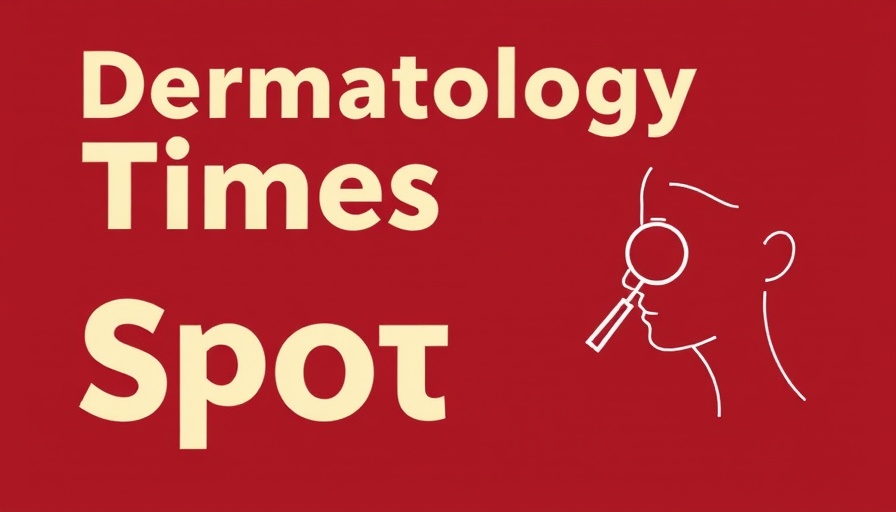
Breaking News in Dermatology: Advances and Research Highlights
The field of dermatology is continuously evolving, with groundbreaking studies and emerging treatments shaping the landscape for both healthcare providers and patients. On July 30, 2025, significant learnings in dermatological care were unveiled, marking important milestones in various conditions such as chronic hand eczema, alopecia areata, and vitiligo.
The Rise of Terbinafine-Resistant Trichophyton Dermatophytosis
One of the more pressing issues in dermatological research has been termed terbinafine-resistant trichophyton dermatophytosis. This emerging condition poses a challenge, particularly among patients who rely on traditional antifungal treatments. Understanding clinicodemographic features and factors contributing to this treatment resistance is essential for developing new strategies that can effectively combat this evolving issue.
Delgocitinib Cream: A Game Changer for Chronic Hand Eczema
The recent FDA approval of Delgocitinib cream represents a pivotal moment for individuals suffering from chronic hand eczema. As the first FDA-sanctioned treatment for this condition, Delgocitinib offers hope for management and relief where options were previously limited. Insights from LEO Pharma executive Robert Spurr point towards this approval being a significant leap forward, paving the way for enhanced therapeutic approaches that improve patient outcomes.
Exciting Developments in Alopecia Areata Treatments
Alopecia areata is another area where recent studies have shown promise. AbbVie's upadacitinib demonstrated its potential in phase 3 trials, achieving significant hair regrowth. This therapy represents a beacon of hope for those affected by severe hair loss, reinforcing the idea that innovation in drug development can lead to real-world improvements in quality of life.
Challenges in Treating Vitiligo with Repibresib
On a contrasting note, the phase 2b trial for repibresib in nonsegmental vitiligo did not meet critical efficacy endpoints. This provides an important reminder of the journey towards effective treatments, highlighting that not all innovations guarantee results, and that setbacks are an inherent part of medical research.
PC111: Revolutionizing Pemphigus Vulgaris and SJS/TEN Treatment
In another promising avenue, PC111 has emerged as a potential game-changing treatment for pemphigus vulgaris and Stevens-Johnson syndrome/toxic epidermal necrolysis (SJS/TEN). Its design focuses on providing rapid relief without the need for immunosuppressive therapies, which often come with a heavy burden of side effects. This novel approach is indicative of a growing trend in dermatology towards targeted and safer treatment protocols.
Navigating Career Transitions in Dermatology
Additionally, as discussed in the Derm Dispatch segment, the profession of Physician Assistants (PAs) in dermatology is evolving. With insights from professionals Renata Block and Jessica Dell'Aquila, the discussion touches upon career transitions and the importance of adapting skills in an ever-changing healthcare landscape.
Connecting Research and Clinical Care: Insights from SPD 2025
At the SPD 2025 conference, emphasis was placed on the bridge between research and clinical practice. Dr. Deepti Gupta's focus on delivering practical insights underscores the necessity for healthcare providers to stay informed of emerging research while maintaining meaningful connections with their peers.
Conclusion: Stay Informed and Engaged
As dermatology continues to advance, it is crucial for patients and providers alike to stay engaged with the latest research. Understanding artificial intelligence, biotechnology, and treatment innovations will not only empower healthcare decisions but also enhance the overall quality of care. The insights from these recent studies reflect the growing commitment to bridging gaps in patient treatment options while navigating the complexities of dermatological diseases. Ensure you remain at the forefront of these developments, advocating for your health and embracing the empowering news emerging in the skincare community.
 Add Row
Add Row  Add
Add 




Write A Comment